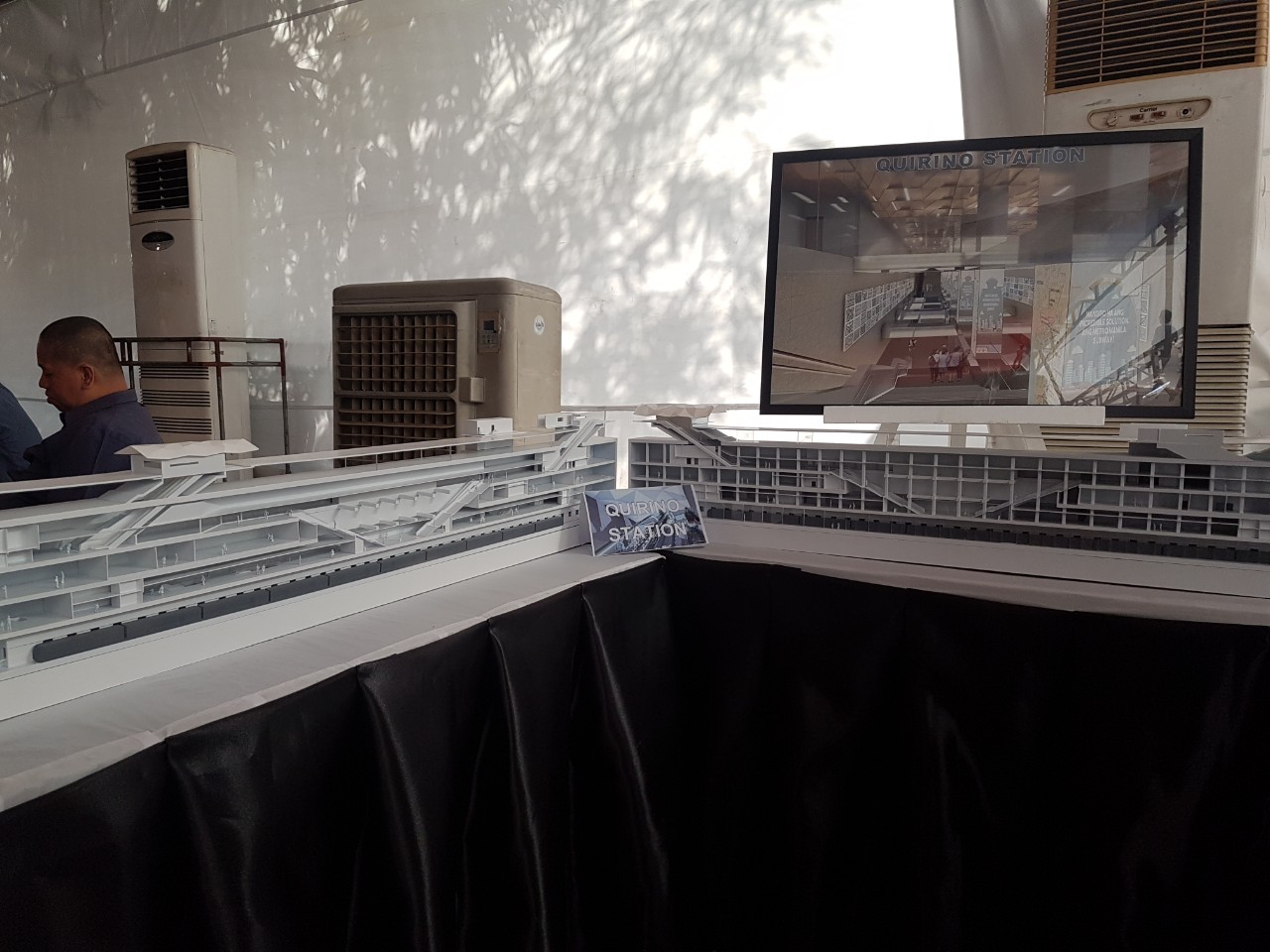News
2019: Year of robust infra development

FILE: Scale model of the Metro Manila Subway System which is expected to have partial operations in 2022. (Photo by Aerol John B. Pateña via PNA)
MANILA — Things seem to be looking up for the Department of Transportation (DOTr) as it continues to push the infrastructure agenda of the Duterte administration this 2019 and several more in the pipeline.
119 completed airport projects
According to a yearend report by the DOTr, the number of completed airport projects alone, from 2016 to 2019, has reached a total of 119 projects — with 70 projects under the DOTr and 49 under the Civil Aviation Authority of the Philippines (CAAP).
This does not include the 166 ongoing airport projects, with 138 projects directly under the DOTr and 28 under the CAAP.
Some of the completed projects this year include the Marinduque Airport, inaugurated on April 11, 2019, which resumed commercial operations in the same month nearly six years after its last commercial operations in 2013.
The Sangley Airport, seen as one of the solutions to decongest the Ninoy Aquino International Airport (NAIA), had its operational dry run on October 29 with general aviation and turboprop cargo operations beginning November.
The Camiguin Airport has been completed and ready for inauguration, with its expanded passenger terminal building, administration building, and a fire station building.
For ongoing airport projects, the highlights include the Bulacan International Airport which had its notice of award issued to the San Miguel Holdings Corporation on August 14 and concession agreement signed on September 18.
The Clark International Airport is 87.61 percent complete as of October 2019, with a new runway to be completed in July 2020 and its operations and maintenance turned over to LIPAD Corporation on August 16.
Following efforts to increase the operational efficiency of airports and reduce day-time flight congestion, 23 out of 42 commercial airports have been night-rated, with another 15 targeted for night-rating in 2022.
Railways
The DOTr has also continued the construction of several railway infrastructure projects this year with even more to come.
A total of six railway projects are under construction including the Metro Manila Subway — clearing phase of the construction began on December 21; the long-delayed Common Station which will connect the MRT-3, MRT-7, LRT-1 and the Metro Manila Subway; MRT-7 which is 49.95 percent complete as of November; the LRT-1 Cavite Extension, 30.74 percent complete as of October; the LRT-2 East Extension, 71.19 percent complete as of October 2019; and the Philippine National Railways (PNR) Clark Phase 1 (Tutuban to Malolos) which began its actual construction on February 15.
The rehabilitation of the MRT-3 is also ongoing which includes the overhaul of the rail line’s 72 light rail vehicles, replacement of mainline tracks, rehabilitation of power and overhead catenary systems, and other improvements to help the MRT-3 cope with the demand for efficient public transportation in Metro Manila.
Rail projects still in the pipeline include the PNR Clark Phase 2, PNR Calamba, PNR Bicol (Subic to Clark), Mindanao Railway, LRT-2 West Extension, LRT-4, and the Cebu Monorail.
Road transport
For road transport, the country’s first landport, the Parañaque Integrated Terminal Exchange continues to serve the public, with two other landports in the pipeline.
These landports include the Taguig City Integrated Terminal Exchange and the North Integrated Terminal Exchange.
Maritime
The DOTr, with the help of its attached agency the Philippine Ports Authority (PPA), has completed a total of 325 port projects from 2016 to 2019 — 181 commercial port projects under the PPA and 144 social and tourism port projects under the DOTr.
Aside from the completed projects, another 246 port projects are ongoing — 58 under the PPA and 188 from the DOTr.
Some of the completed port projects include the completion of the country’s largest port terminal building at the Cagayan de Oro (CDO) Port which can hold 3,000 passengers daily — triple its previous capacity — and the port’s new electronic gate complex with weighbridge inaugurated on July 15.
The Cavite-Manila ferry service was also launched in November, with the MB Seaborne offering free rides until January 9, 2020 and the MV Island Sabtang until January 31, 2020.
The Opol Port, designed as a back-up port to help decongest the CDO port and caters mainly to cargo vessels, was inaugurated on July 15.
The Batangas Container Terminal Expansion Project, completed on April 29, is seen to improve the efficiency of the Port of Batangas by increasing the handling capacity of the port from 300,000 TEUs to 400,000 TEUs annually.
Ongoing projects include the Isabela Port in Basilan, 30.
99 percent complete as of October; the Cebu International Container Port, which, once completed, would handle all foreign containerized cargo completing the Cebu Baseport; the PAGASA Seaport Project Phase 1, 75 percent complete as of October 2019; the modernization of light station — with 551 of 600 lighthouses operational as of November, among many others.





















